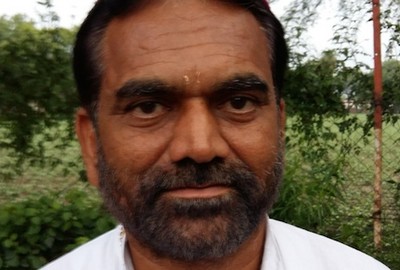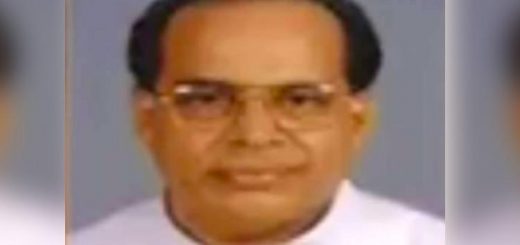Juggling Catholicism and indigenous culture in India

(In the pic:Bishop-elect Basil Bhuriya of Jhabua was named bishop July 18. The date of his ordination has not been announced.)
Jhabua (UCAN):A newly appointed bishop in central India says his biggest challenge is to help Catholics in his diocese adhere to the Catholic faith and values while allowing them to keep their own traditions and customs.
Bishop-elect Basil Bhuriya of Jhabua, along with nearly all other Catholics among his flock, is from the Bhil tribe, one of the largest tribal groups in India.
One strong tradition among the faithful in Madhya Pradesh state is the Bhagoriya festival, which helps young people choose life partners, he says.
If a young man offers a betel leaf as a token of his love to an unmarried woman and she accepts it, they both can start living a married life. The marriage can eventually be solemnized.
However, what is culturally accepted among some indigenous people is not necessarily acceptable and morally right in the Catholic faith, the bishop-elect said.
"There are several similar traditions, but the Church does not follow such customs for marriage other than what is globally accepted by the Church. It is a struggle to bring these traditions in line with Catholic life," said the Divine Word priest, who was named bishop July 18. The date for his ordination has not been announced.
The 59-year old bishop-elect has an ambitious plan to offer quality education to his flock because he believes learning brings advancement in life.
He said Jhabua diocese has 38 schools, including ones run by religious congregations, but they "are yet to establish a Catholic identity with Catholic values."
"Our schools need to become agents of quality and gospel-based valuable education," Bishop Bhuriya told ucanews.com.
He is the second Bhil bishop to take charge of the diocese since it was established in 2002, although Catholic missionary work by Capuchin friars began there some 120 years ago.
Divine Word missioners later began working in poverty-stricken areas, where bridging the socio-economic gap also remains a challenge for the Church, he said.
"People here are poor, and they really struggle to get the basic needs of life such as food, shelter, clothing, clean water, and adequate health facilities," said the bishop, adding that he will attempt to reach out to them through development projects.
Working with tradition
While some traditions may be incompatible with today’s Church values, diocesan programs can also be adapted to embrace others.
For example, the diocese has a sustainable livelihood program that aims to revive traditional food cultivation habits.
Fr Anthon Kattara, director of diocesan social services, said local indigenous people have traditionally cultivated kodo–kutki, a type of millet. The priest said it has high nutritional content, yet the tradition of cultivating it dwindled over time as locals increasingly looked to commonly available grains. This made many people prone to malnutrition.
Despite Christianity being a century old in the area, and nearly all Catholics being tribal people, the local Church continues to face challenges adapting tribal approaches to sacraments, prayers, and faith formation.
The Church also faces challenges because of the political situation in the state, which has been governed by the Hindu nationalist Bharatiya Janata Party for more than a decade.
Religious conversion, carried out without government permission, is a punishable offence.
"We face constant harassment and persecution. The need of the hour is to address people’s grievances and establish rapport with political parties of different ideologies to safeguard our people’s interests," Bishop-elect Bhuriya said.
Almost all of the 5.5 million people in the diocesan area belong to the Bhil tribe but Catholics number only around 40,000.
They "face a kind of social alienation" from Hindu groups in the state and non-baptized tribal people, he said.
“There are conflicts in getting social protection, stability and self-respect. The Church needs to foster unity and harmony in our multicultural, multireligious and diverse situation," he added.
Bhils, with a population of some 12 million, are the second-largest tribal group in India after the Gond. They live spread across the central and western areas of India.
















